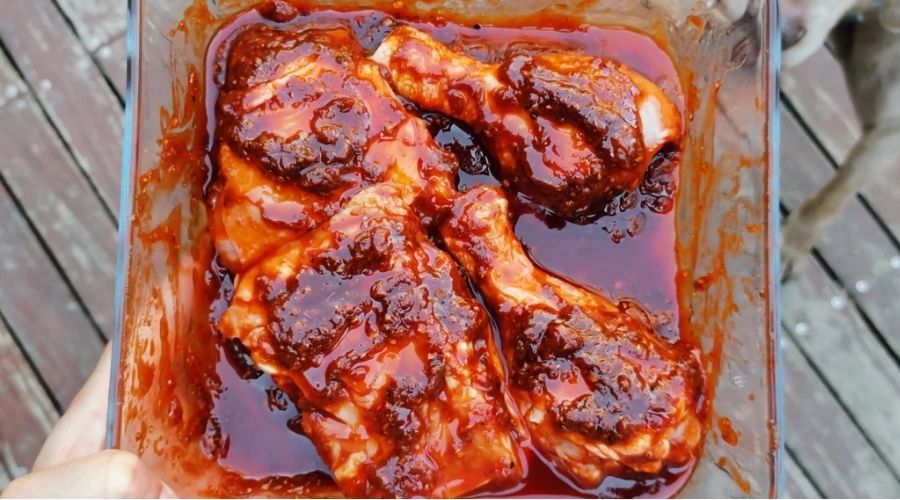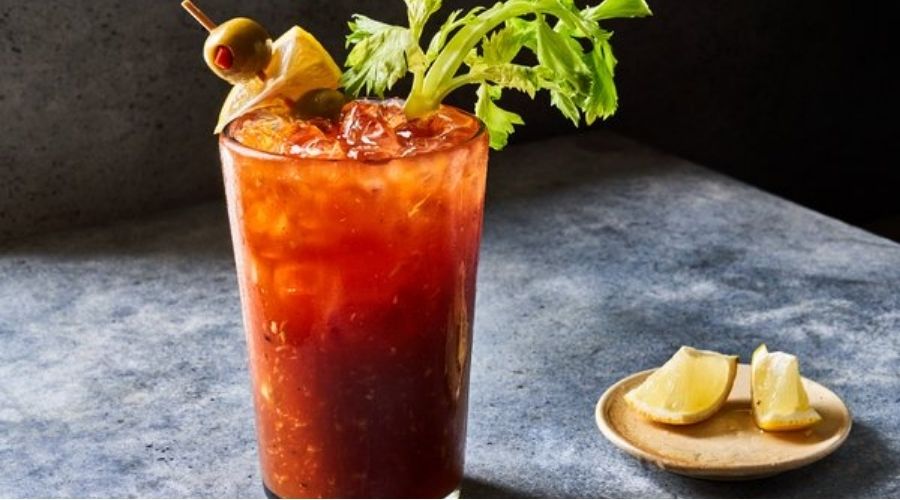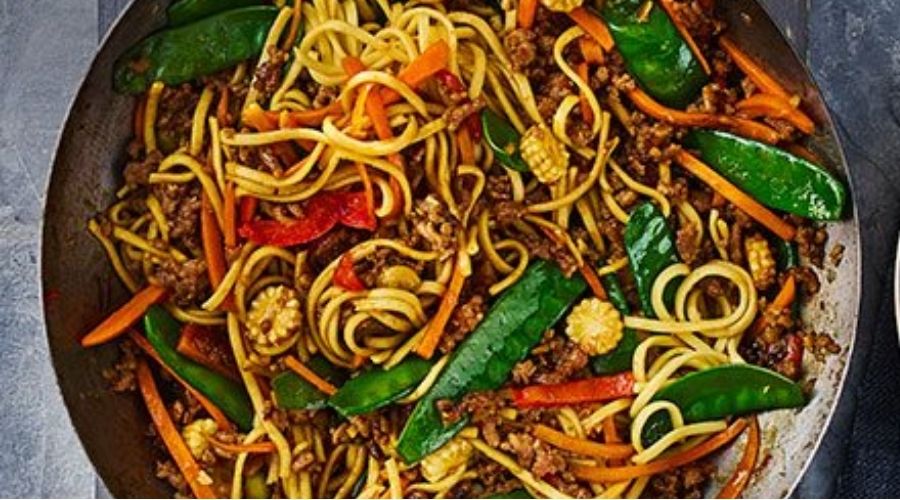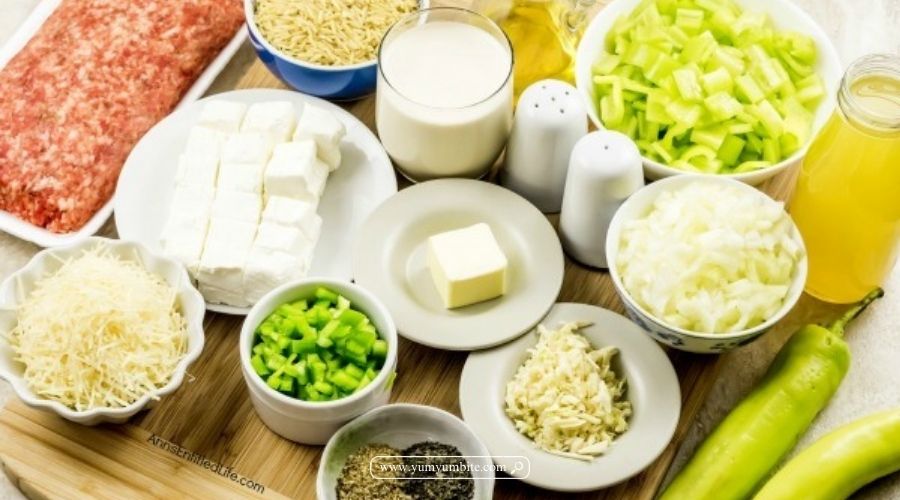If you’ve ever enjoyed banana peppers, you know how their tangy, slightly spicy flavor can elevate a variety of dishes.
But what do you do with the leftover banana pepper juice? Instead of letting it go to waste, this flavorful liquid can be transformed into an ingredient that enhances your culinary creations.
From marinades and dressings to unique sauces and pickling solutions, leftover banana pepper juice offers a world of possibilities.
In this article, we’ll explore creative ways to utilize this versatile juice, ensuring you maximize its flavor and minimize waste in your kitchen.
What to Do with Leftover Banana Pepper Juice: A Culinary Guide
By employing creative methods such as marinating meats, enhancing sauces, or pickling other vegetables, you can add a delightful twist to your meals while making the most of what you have.
Proper storage techniques allow you to preserve this tangy liquid, ensuring it remains a flavorful staple in your kitchen.
So, the next time you find yourself with leftover banana pepper juice, remember these ideas to unleash its full potential.
Embrace the versatility of this ingredient, and enjoy the added depth and excitement it brings to your cooking!
Use It as a Marinade

Leftover banana pepper juice can serve as a flavorful marinade for various proteins, such as chicken, pork, or tofu.
The tangy and slightly spicy profile of the juice adds depth to the flavor of your dish, making it an excellent choice for grilling or roasting.
Simply combine the juice with olive oil, garlic, and herbs for an enhanced marinade that infuses your ingredients with a delightful kick.
However, be cautious about the marinating time; while a few hours can enhance flavor, marinating too long can make the meat overly acidic.
This versatile juice can also work wonders with vegetables, adding zest to your roasted or grilled sides.
Incorporate into Salad Dressings
Another great way to utilize leftover banana pepper juice is by incorporating it into homemade salad dressings.
The juice adds a zesty kick to vinaigrettes and creamy dressings alike, enhancing the overall flavor of your salads.
Simply mix the juice with olive oil, vinegar, and your choice of herbs and spices for a quick and easy dressing. You can also add it to yogurt or sour cream to create a tangy dip for veggies.
Just be cautious with the quantity; too much pepper juice can overpower the other flavors. This is an excellent way to add a bit of excitement to your salads, making them more enjoyable and flavorful.
Use It in Soups and Stews
Leftover banana pepper juice can be an excellent addition to soups and stews, providing a depth of flavor and a hint of heat.
Whether you’re making a hearty vegetable soup or a spicy chili, adding a splash of this juice can elevate the dish. Its acidity helps balance rich flavors, making it a perfect complement to various ingredients.
However, be cautious not to add too much, as it can quickly dominate the dish’s flavor. Start with a small amount and adjust to taste.
This option not only enhances the dish but also makes good use of ingredients that might otherwise go to waste.
Pickle Other Vegetables
If you enjoy pickling, consider using leftover banana pepper juice to pickle other vegetables. The briny, tangy flavors of the juice can infuse cucumbers, carrots, or onions with a delicious taste.
Simply slice the vegetables and submerge them in the banana pepper juice, allowing them to marinate in the refrigerator for a day or two.
This option is a great way to extend the life of your vegetables while adding a flavorful kick to salads, sandwiches, or charcuterie boards.
Just be cautious about the pickling time; shorter marinating times will result in a crisper texture, while longer times will yield softer vegetables.
These pickled delights can also serve as a unique condiment, enhancing a variety of dishes.
Make a Spicy Bloody Mary Mix

Leftover banana pepper juice can be an exciting addition to a Bloody Mary mix. Its tangy and slightly spicy flavor complements the classic ingredients, enhancing the overall taste of the cocktail.
Simply combine the banana pepper juice with tomato juice, Worcestershire sauce, hot sauce, and a squeeze of lemon for a zesty twist on this beloved drink.
This option not only adds depth but also a unique flavor that sets your Bloody Mary apart.
However, be cautious with the amount; start with a small splash and adjust to taste, as the pepper juice can be quite potent.
Garnish with your favorite toppings, like celery, olives, or even more banana peppers for a creative touch.
Enhance Grain Dishes
Using leftover banana pepper juice can add a burst of flavor to grain dishes like rice, quinoa, or couscous. Simply substitute some of the cooking water or broth with the pepper juice for a flavorful twist.
This option allows the grains to absorb the tangy essence of the juice, elevating the dish without additional ingredients.
It pairs particularly well with Mediterranean or Latin-inspired meals. Just be cautious about the salt content, as the juice can be salty. Taste the final product and adjust seasoning accordingly.
This method not only enhances your dish but also makes use of ingredients that would otherwise be discarded.
Create Spicy Dipping Sauce
Transform leftover banana pepper juice into a spicy dipping sauce by combining it with mayonnaise, sour cream, or Greek yogurt.
This creamy sauce can serve as a fantastic dip for fresh veggies, chips, or even as a spread for sandwiches and wraps.
The tanginess of the pepper juice will add a flavorful punch, making your dips more exciting.
You can also mix in herbs, garlic, or spices to customize the flavor to your liking. Just be cautious with the amount of juice you use; a little can go a long way in terms of flavor.
This versatile dip is not only delicious but also a great way to spice up snack time!
Infuse Oils or Vinegars
Leftover banana pepper juice can be used to infuse oils or vinegars, creating a unique condiment that enhances various dishes.
Simply combine the juice with olive oil or white vinegar in a bottle, allowing the flavors to meld over a few days.
This infused oil or vinegar can then be used in dressings, marinades, or as a drizzle over grilled meats and vegetables. The resulting product will have a delightful peppery kick that elevates everyday meals.
However, be cautious with how long you infuse; too long can make the flavor overpowering. A few days is typically sufficient to achieve a nice balance.
This option not only utilizes the leftover juice but also adds a gourmet touch to your cooking!
Add to Stir-Fries

Leftover banana pepper juice can be a flavorful addition to stir-fries, enhancing both the taste and color of your dish.
Simply drizzle some of the juice over your vegetables and proteins while cooking to infuse them with a tangy, spicy kick.
This option works particularly well with ingredients like bell peppers, broccoli, and chicken, giving your stir-fry a unique flavor profile. Just be cautious not to overdo it; too much juice can make the dish overly tangy.
Start with a tablespoon or two, then taste and adjust as needed. This approach not only elevates your stir-fry but also makes good use of ingredients that would otherwise be wasted.
Make a Tangy BBQ Sauce
Using leftover banana pepper juice to create a tangy BBQ sauce is a great way to add a unique twist to your grilling.
Combine the juice with ketchup, brown sugar, vinegar, and your favorite spices to create a sweet and spicy sauce that complements grilled meats beautifully.
This option provides a distinctive flavor that sets your BBQ apart from traditional sauces. However, be cautious with the balance of ingredients; too much juice may overpower the sweetness of the sauce.
Start with a small amount and adjust based on your taste preferences. This homemade BBQ sauce can also be used as a glaze or dipping sauce, making it a versatile addition to your grilling repertoire.
Use in Deviled Eggs
Leftover banana pepper juice can add a delightful twist to classic deviled eggs. Simply mix the juice into your egg yolk mixture along with mayonnaise, mustard, and spices for a zesty flavor boost.
This option not only enhances the taste but also adds a touch of color and excitement to your appetizers. The tangy, slightly spicy notes from the banana pepper juice will surprise and delight your guests.
Just be cautious with the quantity; a tablespoon or two is usually sufficient to achieve the desired flavor without overpowering the other ingredients. These deviled eggs are perfect for parties, picnics, or casual gatherings.
Infuse Broth or Stock
Leftover banana pepper juice can be a great way to infuse flavor into your broths or stocks. Use it as part of the liquid when simmering vegetables, chicken, or beef to create a rich and flavorful base for soups or stews.
The juice will impart a tangy heat that can elevate the entire dish. Just be cautious about how much you add, as the acidity can change the flavor profile significantly.
Start with a small amount and taste as you go to ensure the balance remains right.
This method not only utilizes your leftover juice but also results in a delicious, well-rounded broth that enhances any meal.
How to Store/Freeze Leftover Banana Pepper Juice
Storing leftover banana pepper juice correctly can help preserve its tangy flavor and versatility for future use.
Whether you want to keep it in the fridge for short-term use or freeze it for long-term storage, proper techniques will ensure you can enjoy that vibrant flavor later.
By following these steps, you can maximize the shelf life of your banana pepper juice, allowing you to add a delicious kick to your meals whenever you like.
Storing Leftover Banana Pepper Juice in the Refrigerator
- Cool the Juice
If you’ve just opened or prepared the banana pepper juice, allow it to cool to room temperature if it’s warm. This prevents condensation inside the storage container, which can dilute the flavor. - Choose an Appropriate Container
Transfer the juice into a clean, airtight container, such as a glass jar or a plastic bottle with a tight-sealing lid. Make sure the container is large enough to allow some space at the top, as liquids can expand when frozen. - Label the Container
Clearly label the container with the date you stored the juice. This will help you keep track of its freshness and ensure you use it within a reasonable timeframe. - Refrigerate
Store the container in the refrigerator. Properly stored, banana pepper juice can last for about 1 to 2 weeks. Be sure to check for any signs of spoilage, like an off smell or discoloration, before using it.
Freezing Leftover Banana Pepper Juice
- Cool the Juice
As with refrigeration, ensure the juice has cooled to room temperature if it has been recently made or opened. - Use Ice Cube Trays
Pour the banana pepper juice into ice cube trays, filling each compartment about three-quarters full to allow for expansion. This method makes it easy to thaw small portions as needed. - Cover the Trays
Cover the trays with plastic wrap or a lid to prevent any odors from the freezer from affecting the juice. - Freeze
Place the trays in the freezer until the juice has completely frozen. This usually takes several hours. - Store Frozen Cubes
Once frozen, pop the juice cubes out of the trays and transfer them to a resealable plastic bag or an airtight container. Label the bag or container with the date and contents for easy identification. - Use as Needed
When you’re ready to use the frozen banana pepper juice, simply take out the desired number of cubes and thaw them in the refrigerator or use them directly in cooking.
Properly storing or freezing leftover banana pepper juice can significantly extend its shelf life, allowing you to enjoy its unique flavor in various dishes later on.
Whether you choose to refrigerate it for short-term use or freeze it in convenient portions, these methods ensure that the tangy, spicy essence of the juice remains intact.
Using fresh juice can elevate your culinary creations, whether in marinades, salad dressings, or sauces.
By taking the time to store it correctly, you’re making the most of your ingredients, minimizing waste, and keeping your pantry well-stocked with delicious flavors for future meals.
So go ahead, savor the taste of banana pepper juice long after you’ve opened that jar!
Can I use leftover banana pepper juice in cooking?
Absolutely! Leftover banana pepper juice is versatile and can be used in various cooking applications.
It adds a tangy and slightly spicy flavor to marinades, salad dressings, soups, and sauces.
Just be mindful of the quantity you use, as its strong flavor can dominate other ingredients.
How long can I store leftover banana pepper juice in the refrigerator?
When stored properly in an airtight container, leftover banana pepper juice can last for about 1 to 2 weeks in the refrigerator. Always check for signs of spoilage, such as an off smell or unusual appearance, before using it.
Is it possible to freeze banana pepper juice?
Yes, you can freeze banana pepper juice! Pour it into ice cube trays or an airtight container and freeze it.
Once frozen, transfer the juice cubes to a resealable bag for easy storage. Frozen banana pepper juice can last for several months and can be conveniently used in small portions as needed.
What are some creative ways to use leftover banana pepper juice?
There are many creative uses for leftover banana pepper juice! You can use it as a marinade for meats, incorporate it into salad dressings, add it to stir-fries, or even use it to enhance the flavor of soups and stews.
It can also be used to pickle other vegetables for a zesty side dish.
Can I drink leftover banana pepper juice?
While it is safe to drink leftover banana pepper juice, its strong flavor may not be enjoyable on its own.
Instead, consider mixing it into beverages like Bloody Marys or using it as a tangy ingredient in salad dressings or sauces for a flavorful boost.
Sources
- https://www.yummly.com/recipes/banana-pepper-juice
- https://westseattleblog.com/forums-2/topic/banana-peppers-solutions/
- https://www.today.com/food/best-uses-leftover-pickle-juice-t223760
- https://lowcarbkaye.com/2016/07/23/lowcarbrecipe-what-can-i-do-with-all-that-leftover-picklepepper-juice/


